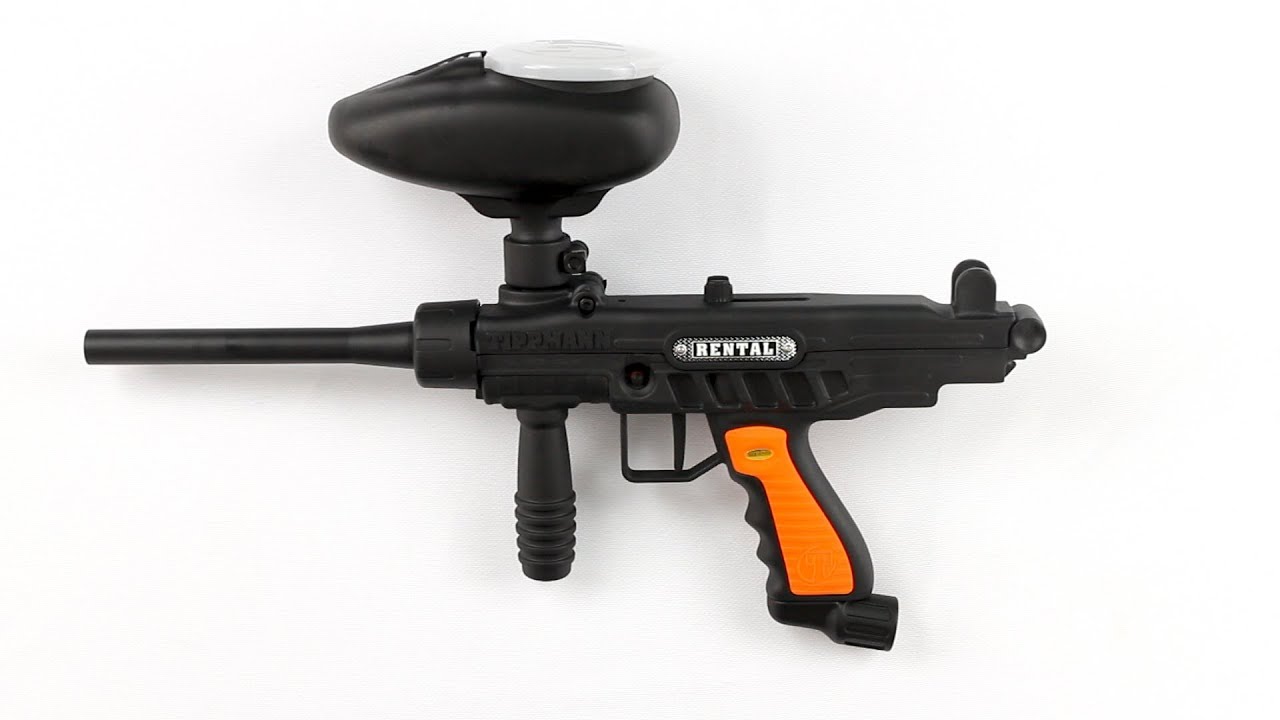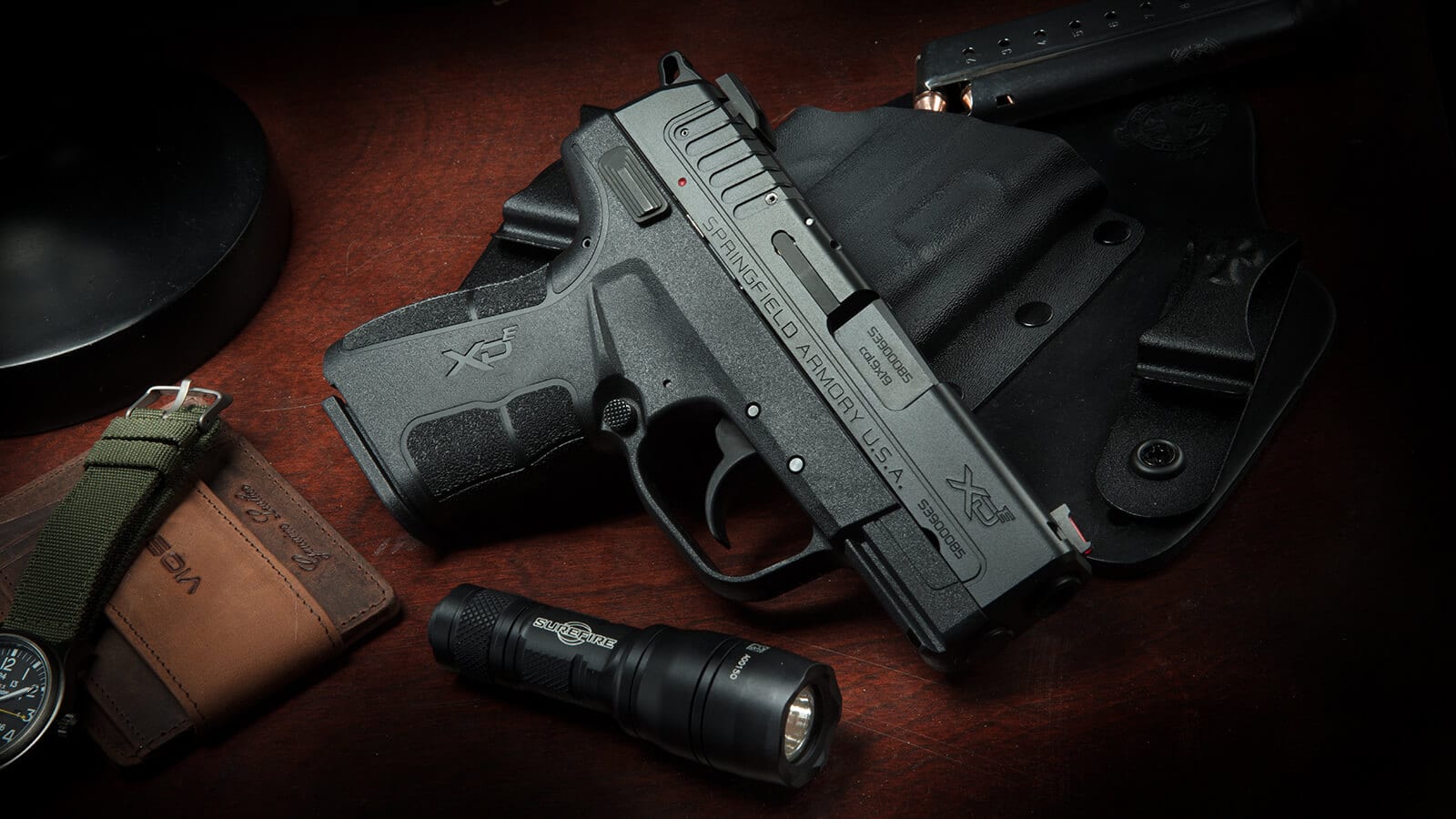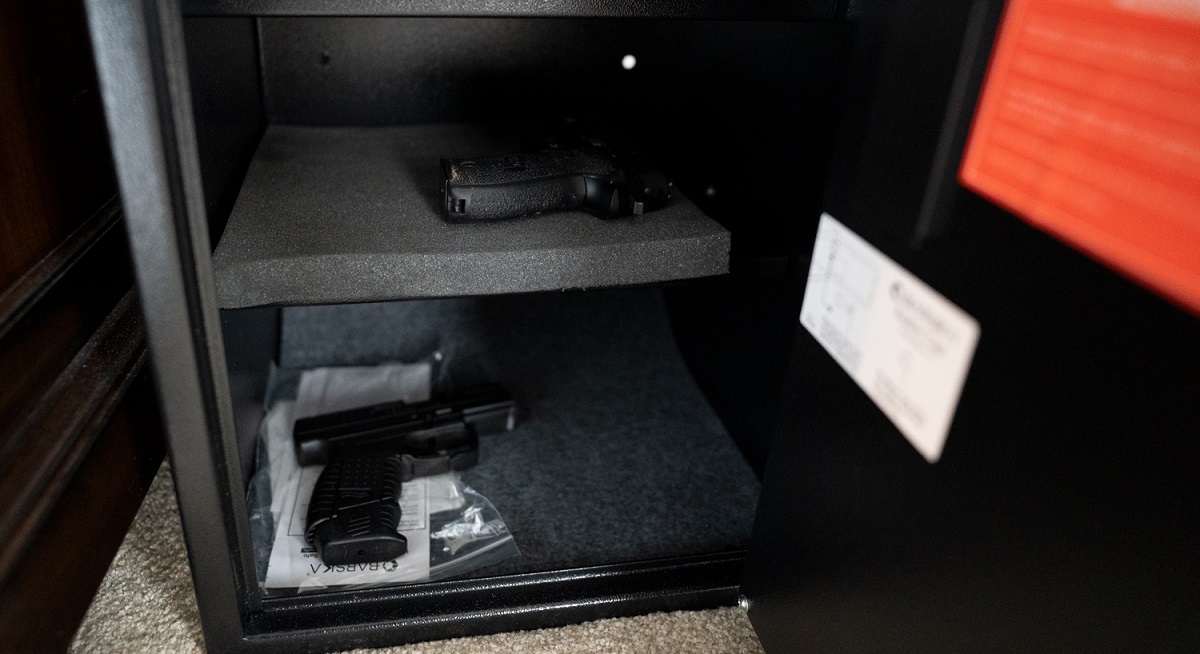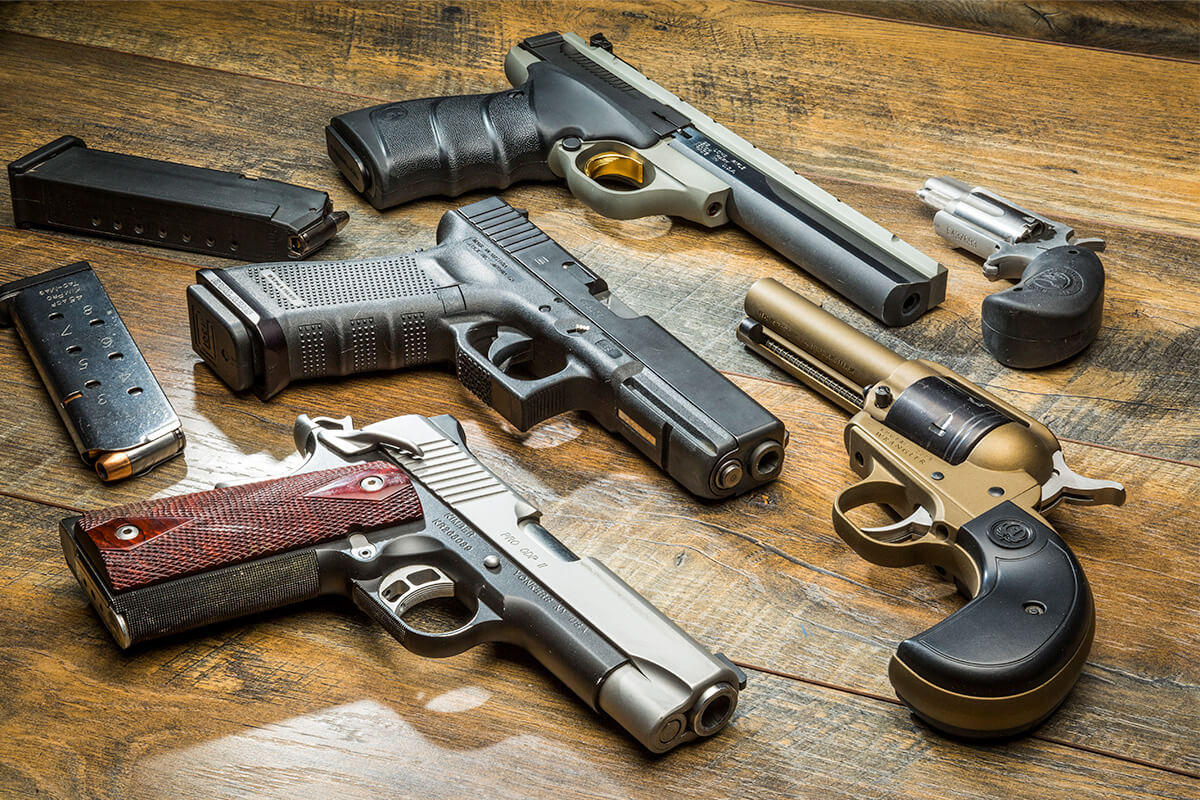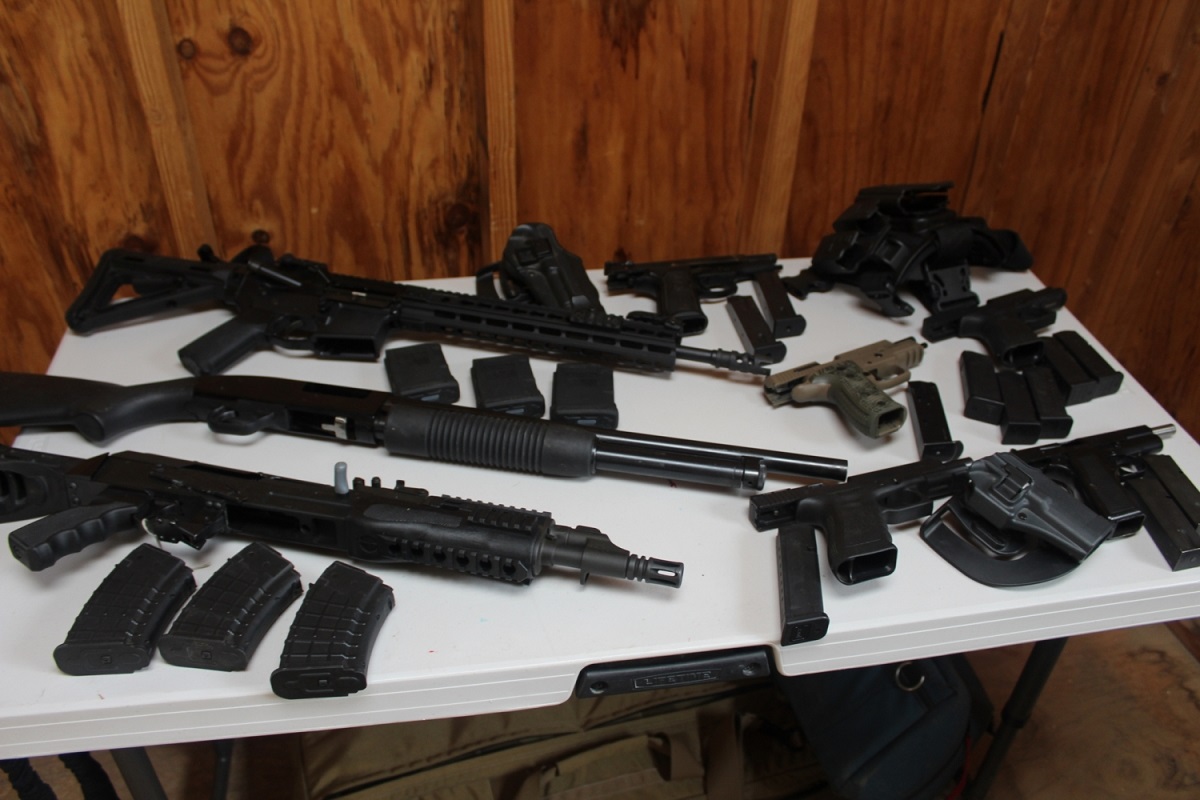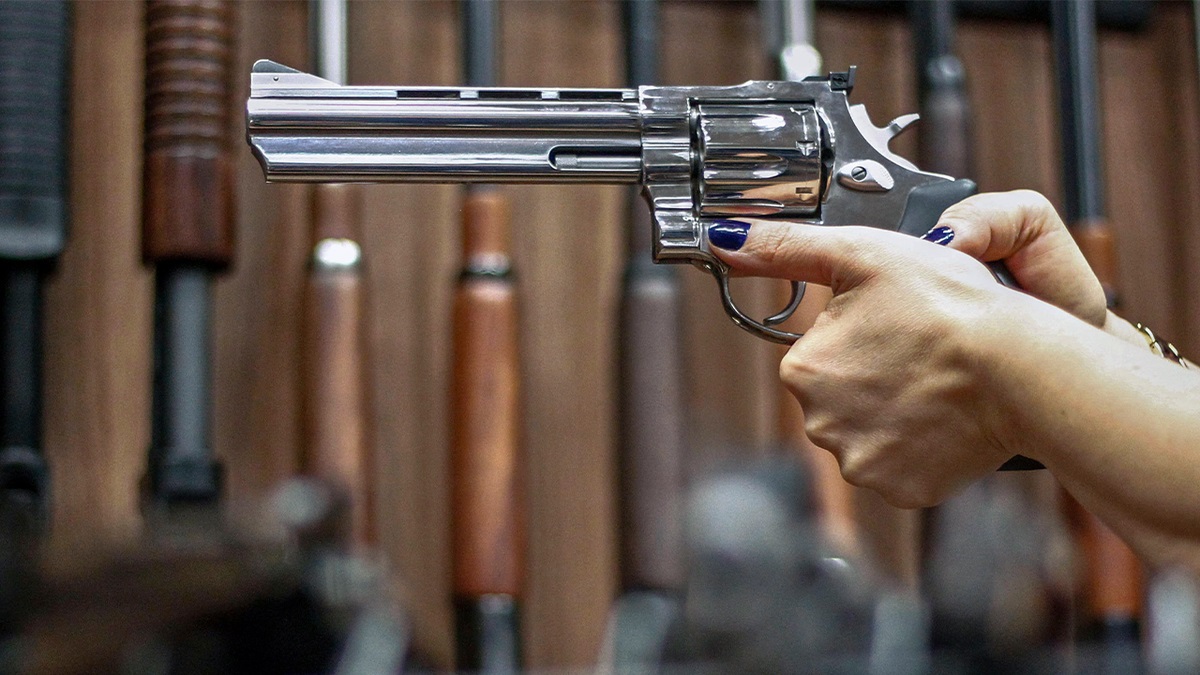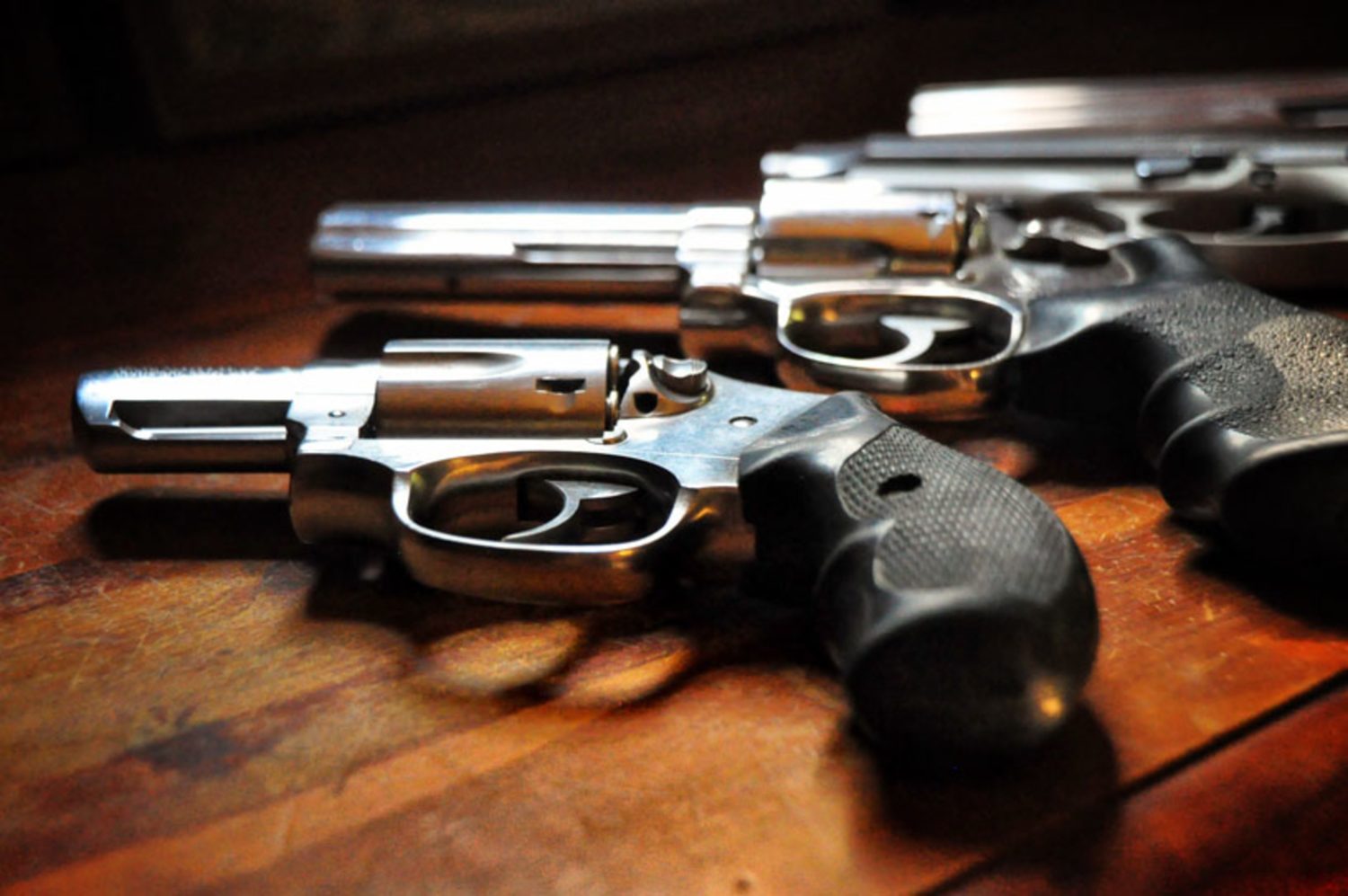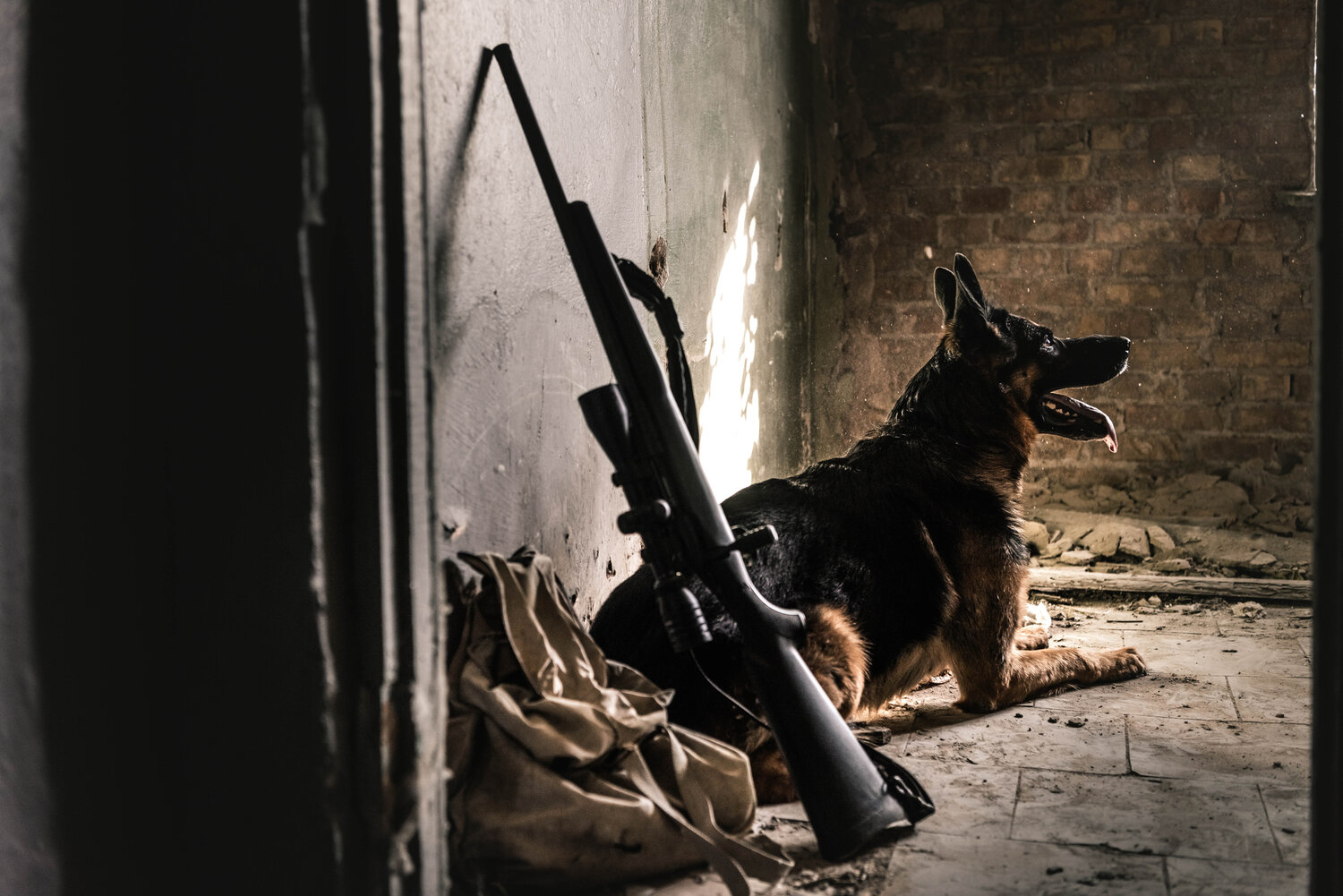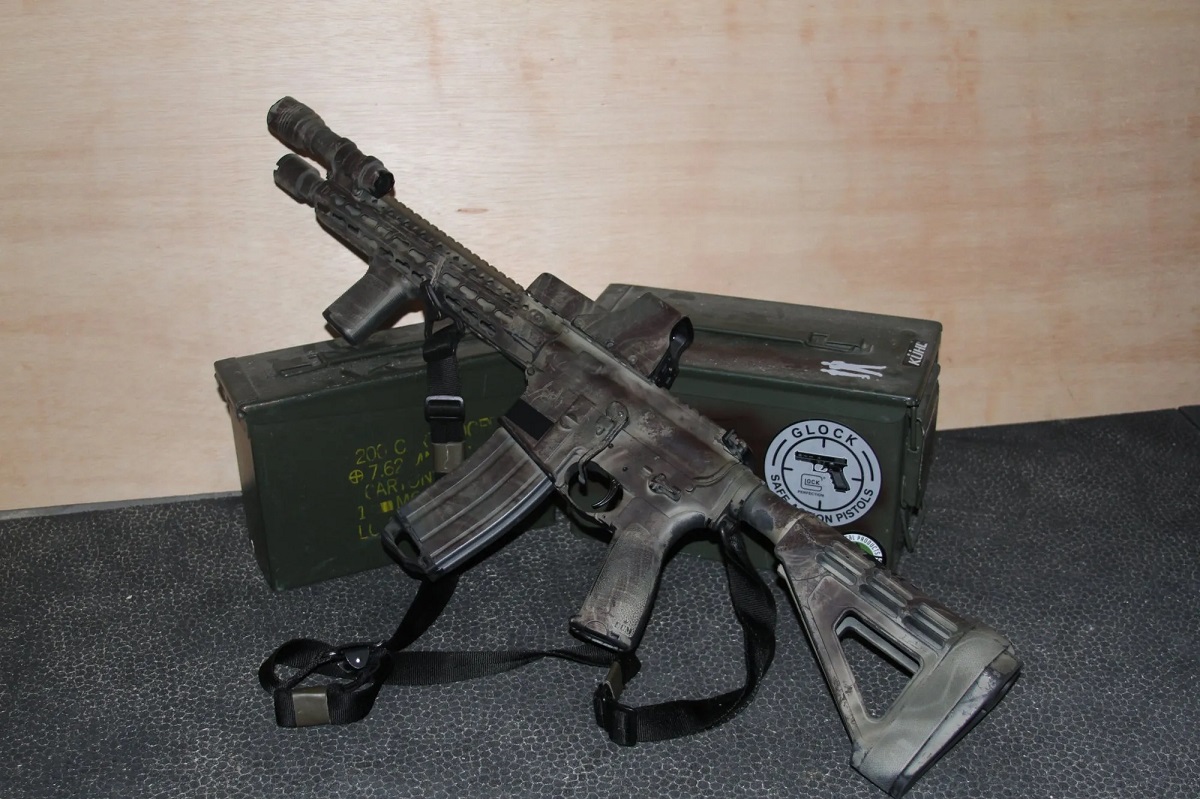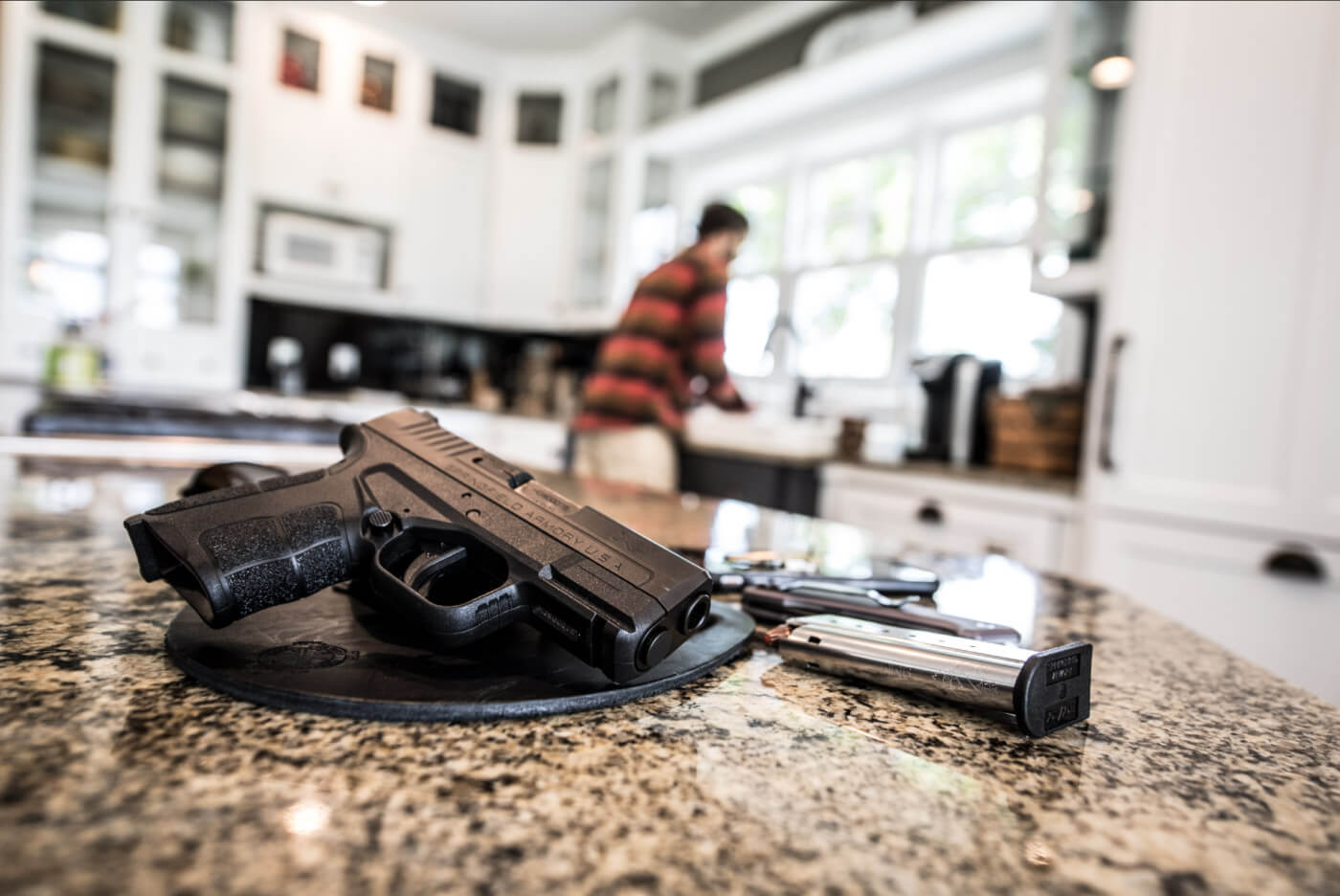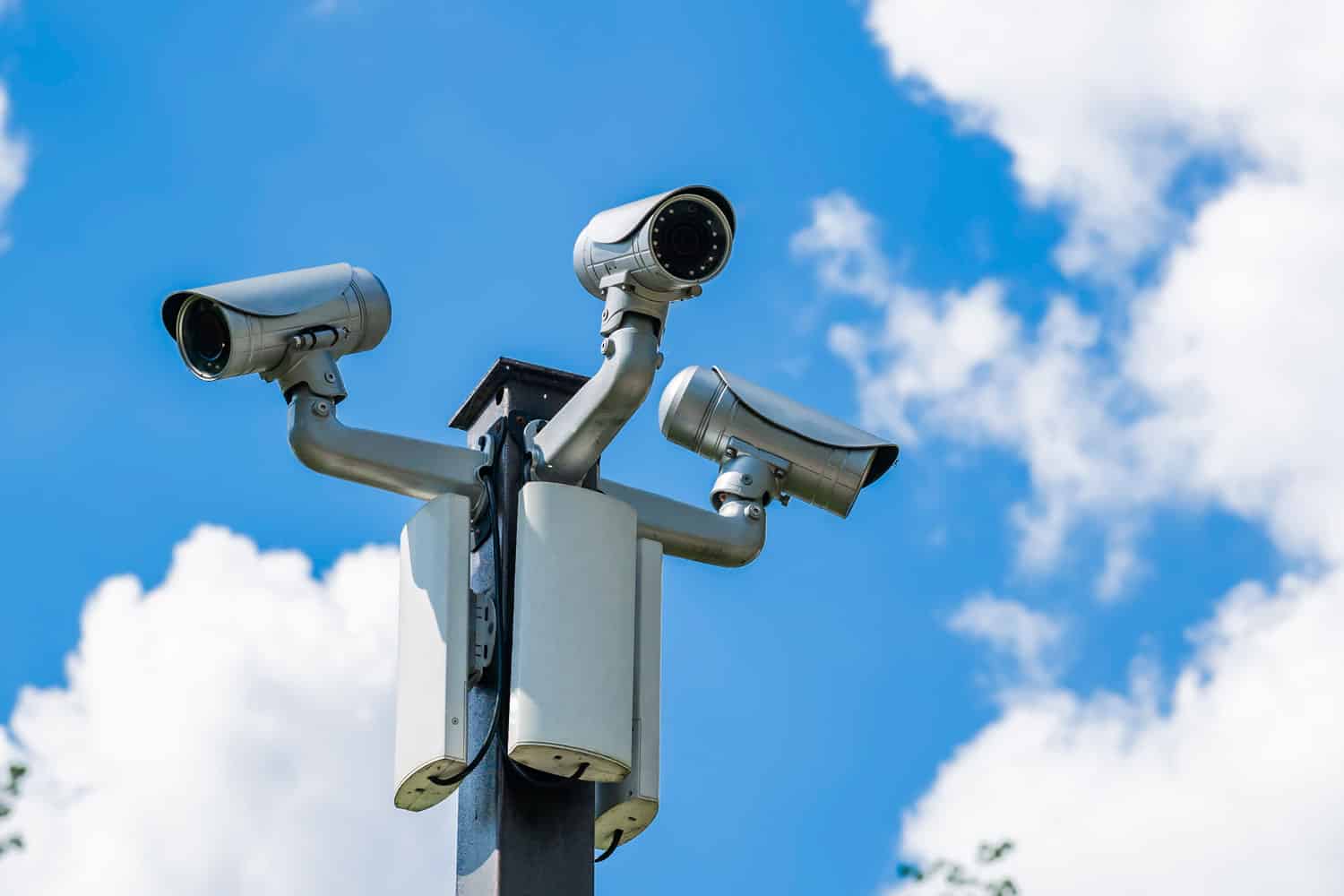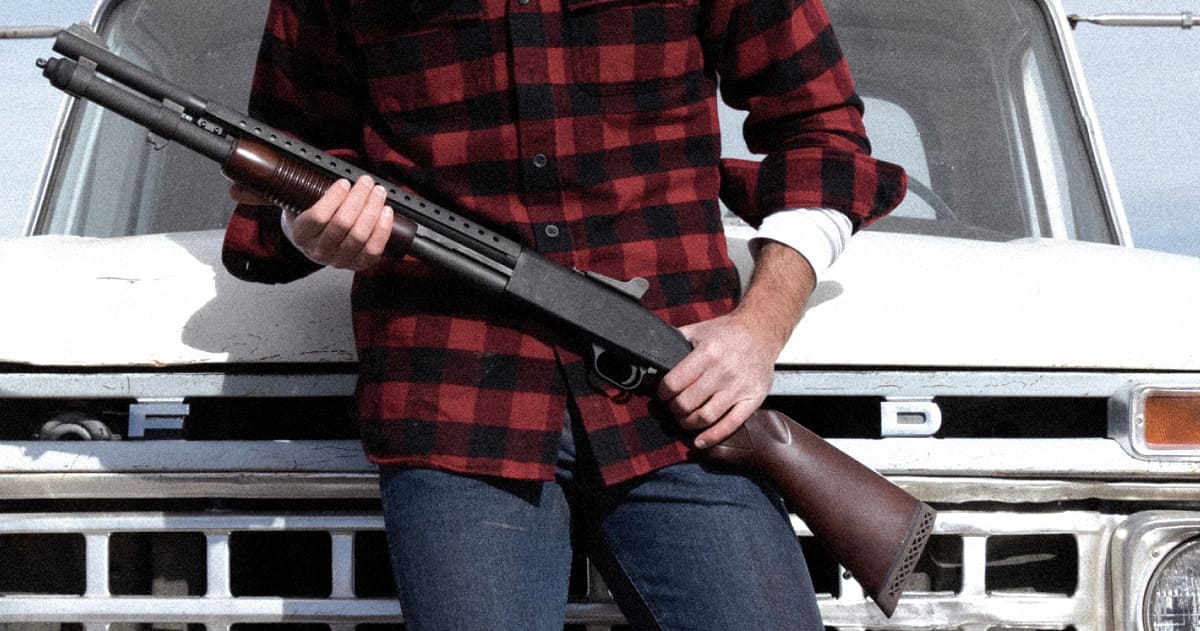Home>Home Security and Surveillance>How Necessary Is A Gun For Home Defense
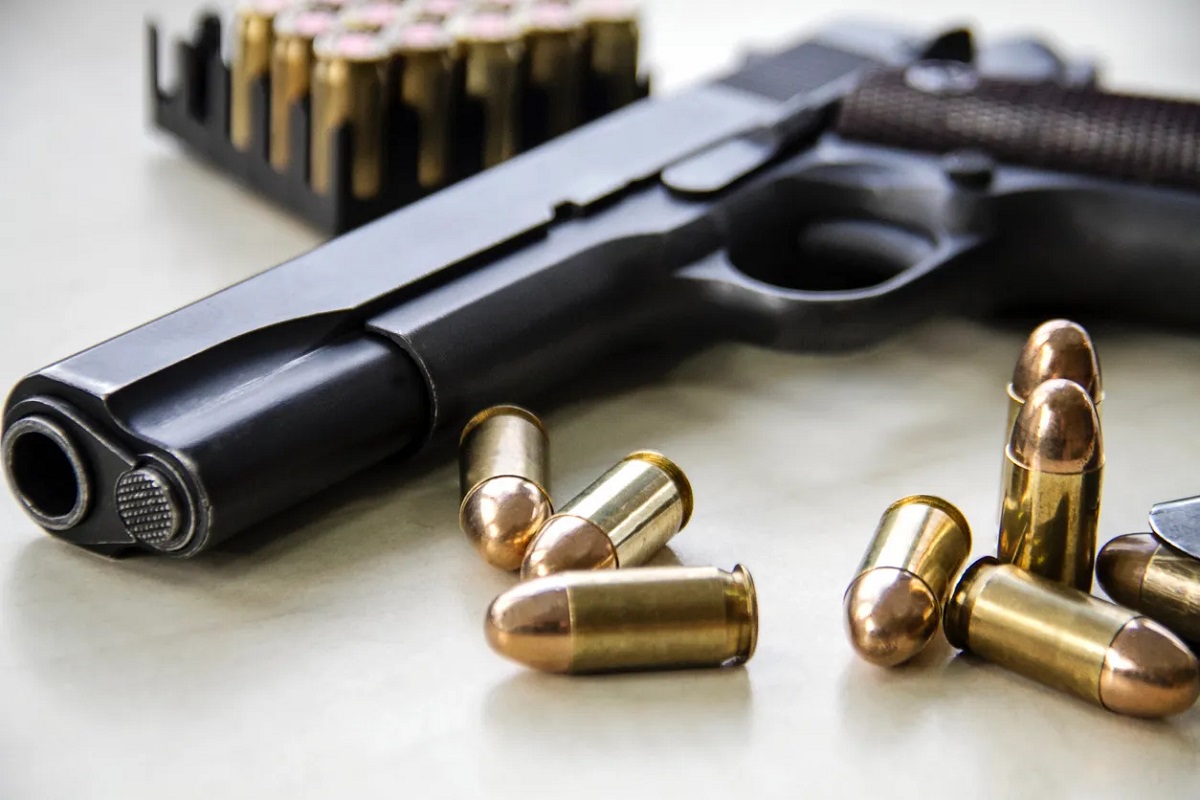

Home Security and Surveillance
How Necessary Is A Gun For Home Defense
Modified: March 6, 2024
Protect your home with the necessary security measures. Discover the importance of having a gun for home defense and enhancing your overall home security and surveillance.
(Many of the links in this article redirect to a specific reviewed product. Your purchase of these products through affiliate links helps to generate commission for Storables.com, at no extra cost. Learn more)
Introduction
When it comes to protecting your home and loved ones, security is of paramount importance. One key aspect of home security is defense against potential intruders or burglars. While there are various methods and technologies available for home defense, the topic of gun ownership often sparks intense debates. Advocates argue that owning a gun is crucial for personal safety, while opponents express concerns about the potential risks associated with firearms in a home environment.
In this article, we will delve into the debate surrounding the necessity of owning a gun for home defense. We will examine statistics on home invasions, explore the role of firearms in home defense, consider arguments in favor of gun ownership, discuss counterarguments against it, and look at alternatives to guns for home defense. By doing so, we aim to provide a balanced perspective on this complex issue.
Key Takeaways:
- Owning a gun for home defense has pros and cons. It’s crucial to weigh the benefits of protection against the risks of accidents and violence escalation.
- There are alternative ways to protect your home, like security systems and neighborhood watch programs. Choose the method that makes you feel safest and most secure.
Read more: How To Practice Guns For Home Defense
Statistics on Home Invasions
Before diving into the debate on gun ownership for home defense, it’s important to understand the prevalence of home invasions and the potential risks homeowners face. While exact numbers may vary, it is evident that home invasions are a disturbing reality for many households.
According to the FBI’s Uniform Crime Reporting (UCR) program, in 2019 alone, there were an estimated 1.2 million burglaries reported across the United States. That amounts to a burglary occurring approximately every 25.7 seconds. These numbers highlight the need for effective home security measures to prevent break-ins and protect both property and the safety of occupants.
Furthermore, it is crucial to note that home invasions can have severe consequences. Not only can they result in significant financial loss due to stolen possessions and property damage, but they also pose a potential threat to the physical well-being of individuals and families. In some instances, burglaries can escalate into violent encounters, causing injury or even loss of life.
Understanding the alarming statistics on home invasions underscores the importance of considering appropriate measures to defend against potential intruders. While opinions differ on the most effective methods, it is clear that finding a reliable and efficient solution should be a top priority for homeowners.
The Role of Firearms in Home Defense
When discussing home defense, firearms often come to the forefront of the conversation. Guns have long been regarded as a means of protection, allowing individuals to defend themselves and their property in the face of danger. However, it is important to understand the potential benefits and risks associated with using firearms for home defense.
Advocates of gun ownership argue that firearms can serve as a powerful deterrent and provide a means of self-defense in the event of a home invasion. The presence of a firearm in a household may discourage criminals from targeting that home, knowing that there is a higher likelihood of encountering armed resistance. Furthermore, proponents argue that in a life-threatening situation, a gun can provide homeowners with the means to protect themselves and their loved ones.
However, it is essential to acknowledge the potential risks and responsibilities that come with owning a firearm. Improper handling or storage of guns can lead to unintentional accidents, putting occupants at risk. Moreover, the presence of a firearm in the home can escalate a potentially volatile situation and increase the likelihood of violence.
Deciding on the role of firearms in home defense requires careful consideration of personal circumstances and the willingness to undertake necessary safety precautions. To responsibly own a gun for home defense, individuals should receive proper training, understand local laws and regulations, and ensure secure storage to prevent unauthorized access.
While firearms can serve as a viable option for some homeowners, it is essential to explore alternative methods of home defense for those who may not feel comfortable with or have access to guns. Adopting a multi-layered approach to home security can provide additional protection and peace of mind.
Arguments in Favor of Owning a Gun for Home Defense
Proponents of gun ownership for home defense put forth several arguments supporting the idea that owning a firearm is necessary for protecting one’s home and loved ones. Here are some of the key points often raised:
- Deterrence: Advocates argue that the mere presence of a firearm in a household can act as a strong deterrent against potential intruders. Knowing that homeowners have the means to defend themselves may make criminals think twice before attempting a break-in.
- Immediate Response: In the event of a home invasion, proponents argue that a gun provides a means for immediate response and self-defense. With proper training and preparation, homeowners can potentially neutralize a threat and protect themselves and their families.
- Equality: Guns are believed to level the playing field, especially for individuals who may be physically weaker or unable to defend themselves through other means. It allows them to have a reliable means of protection and increases their chances of defending against intruders.
- Psychological Assurance: Owning a gun can provide a sense of security and peace of mind for some homeowners. The knowledge that they have a means to protect themselves can alleviate fear and anxiety, contributing to a sense of personal safety.
- Flexibility: Guns offer a certain degree of flexibility in terms of engagement range and effectiveness. They can be used for both short-range encounters within the confined space of a home and longer-range situations if necessary.
While these arguments present valid points, it is essential to consider the counterarguments and alternative approaches to home defense before making a decision on gun ownership.
Consider other home defense options like a security system, reinforced doors and windows, and self-defense training. If you choose to have a gun, make sure to store it safely and get proper training.
Arguments Against Owning a Gun for Home Defense
While some people argue in favor of owning a gun for home defense, there are valid counterarguments that question the necessity and suitability of firearms in this context. Here are some of the key arguments against owning a gun for home defense:
- Risk of Accidental Injury: One of the primary concerns with owning a firearm is the risk of accidental injury, especially if proper safety precautions are not consistently followed. Accidental discharges, mishandling, or improper storage can lead to tragic consequences for both occupants of the household and innocent bystanders.
- Escalation of Violence: Critics argue that the presence of a gun in a home can escalate potentially dangerous situations. In the heat of the moment, the use of a firearm may lead to unintended consequences, resulting in more harm than good. Alternative methods of home defense, such as non-lethal weapons or security systems, can provide effective deterrents without the same escalation risk.
- Increased Risk of Suicide and Domestic Violence: Studies have shown a correlation between gun ownership and an increased risk of suicide and domestic violence incidents. The accessibility of firearms in a home can potentially amplify impulsive actions or lead to tragic outcomes in emotionally charged situations.
- Training and Skill Requirements: Owning a gun for home defense comes with the responsibility of proper training and skill maintenance. Without ongoing training and practice, the effectiveness of using a firearm may be compromised. Some argue that the time and financial commitment required for adequate training may outweigh the benefits, especially for individuals who do not have the resources or inclination to pursue extensive firearm training.
- Alternative Home Defense Options: Critics contend that there are numerous alternative methods of home defense that do not involve firearms. These include installing robust security systems, reinforcing doors and windows, using non-lethal self-defense tools like pepper spray or tasers, or even engaging in community watch programs. These non-lethal options provide effective means of protection while minimizing the risks associated with firearms.
Considering these arguments against owning a gun for home defense highlights the importance of exploring alternative solutions that provide effective protection while minimizing potential risks.
Read more: Home Defense: When A Gun Is Not Enough
Alternatives to Guns for Home Defense
While guns may be a popular choice for home defense, there are alternative methods and technologies available that can provide effective protection without the potential risks associated with firearms. Here are some viable alternatives to consider:
- Home Security Systems: Installing a comprehensive home security system is an excellent alternative to guns. These systems typically include features such as surveillance cameras, door and window sensors, motion detectors, and alarm systems. With a monitored security system, authorities can be alerted in case of a break-in, providing a prompt response and deterring potential intruders.
- Strong Perimeter and Door Security: Strengthening the security of your home’s perimeter is another alternative to consider. This can include reinforcing doors and windows with high-quality locks, installing security film or laminated glass to make them more resistant to break-ins, and adding sturdy barriers such as security doors or window bars.
- Neighborhood Watch Programs: Participating in a local neighborhood watch program can help create a sense of community security. Neighbors working together to monitor and report suspicious activities can act as a powerful deterrent for potential burglars and promote a safer living environment.
- Non-Lethal Self-Defense Tools: Non-lethal self-defense tools, such as pepper spray, tasers, or personal alarms, can offer a practical and safe means of protection. These tools provide a way to disable and disorient an intruder without the permanent and potentially lethal consequences associated with firearms.
- Security Lighting: Adequate lighting around your home can greatly enhance its security. Well-placed outdoor lighting, including motion-activated lights, can discourage potential intruders by eliminating hiding spots and making them more visible to neighbors and passersby.
- Secure Safe Rooms: Creating a secure safe room within your home can provide a safe retreat in case of an intruder. Reinforced doors, reinforced walls, and communication devices can allow you to protect yourself and your family while waiting for help to arrive.
Exploring these alternatives can provide effective protection for your home and loved ones while minimizing the potential risks associated with firearms. Each option should be evaluated based on your personal circumstances, preferences, and requirements.
Conclusion
Home security and defense are of utmost importance in today’s world, and the debate surrounding the necessity of owning a gun for home defense continues to generate varying opinions. While firearms are often seen as a means of protection, it is crucial to consider all aspects and weigh the potential benefits against the associated risks.
Statistics on home invasions remind us of the alarming frequency of break-ins and the need for effective measures to safeguard our homes. However, the decision to own a gun for home defense should not be taken lightly. It requires careful consideration of the potential risks, responsibilities, and the individual’s ability to handle and store firearms safely.
Arguments in favor of gun ownership emphasize the deterrence factor, immediate response capabilities, and the flexibility guns offer in terms of engagement range. On the other hand, counterarguments stress the risk of accidents and the potential escalation of violence that may accompany the presence of firearms in the home.
It is essential to explore alternative methods of home defense, such as home security systems, strong door and window security measures, neighborhood watch programs, non-lethal self-defense tools, security lighting, and secure safe rooms. These alternatives provide effective protection while minimizing the potential risks associated with firearms.
Ultimately, the decision on whether to own a gun for home defense is a personal one and should consider factors such as individual comfort, training, local laws, and the home environment. Prioritizing safety, responsibility, and a comprehensive approach to home security is key.
By understanding the statistics on home invasions, considering the role of firearms, evaluating arguments both in favor of and against gun ownership, and exploring alternative options, homeowners can make informed decisions to protect their homes and loved ones effectively.
Remember, regardless of the approach you choose, maintaining a safe and secure home should be the primary goal. Regularly reassessing and updating your security measures ensures that you are well-prepared to face any potential threats that may arise.
Frequently Asked Questions about How Necessary Is A Gun For Home Defense
Was this page helpful?
At Storables.com, we guarantee accurate and reliable information. Our content, validated by Expert Board Contributors, is crafted following stringent Editorial Policies. We're committed to providing you with well-researched, expert-backed insights for all your informational needs.
